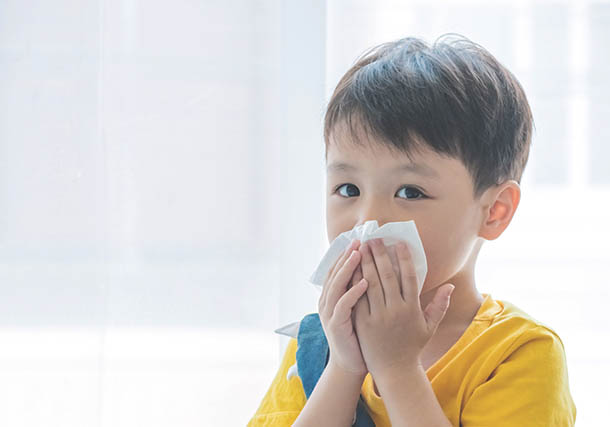
Dust Allergy Treatment in Charlotte
If you’re seeking information about and treatment for dust allergies, Carolina Asthma and Allergy Center can provide the answers you’ve been looking for. We specialize in comprehensive evaluation and treatment for allergies, including the prevention and management of dust allergies through methods like allergy shots.
Dust mites are the culprit of dust allergies. Individuals who suffer from dust allergies are allergic to the body and waste of dust mites. If you think you may suffer from a dust mite allergy, contact our allergists for a physical exam and medical history evaluation. Our dedicated team will assess your allergies, evaluate your symptoms, and provide thorough management plans for your allergies.
Contact us today to schedule a consultation and discover the different ways you can effectively manage your allergies. Our team is here to guide you towards a healthier and more comfortable future.
How to Request an Appointment
Booking an appointment is hassle-free. You can simply reach out to our office by phone or complete the online appointment request form on our website. Our friendly and accommodating staff will collaborate with you to find a date and time that suits your schedule perfectly.
During your scheduled appointment, our skilled allergists will conduct a comprehensive evaluation of your medical history and perform a thorough physical examination. To accurately diagnose the presence of any allergies, we will customize a range of tests to address your specific needs.
Based on the results of your evaluation and tests, our experienced team will create a personalized treatment plan designed to effectively manage your allergy symptoms and prevent future allergic reactions.
Take the important step toward understanding and effectively managing your allergies by contacting us today to request an appointment. Our dedicated team is committed to supporting you on your journey to a more convenient lifestyle.
What Causes Dust Allergies?
Dust allergies are caused by dust mites, small organisms often found in a person’s home. Dust mites are microscopic creatures that are smaller than one millimeter. Dust mites thrive in warm, humid conditions. While they may be present year-round, dust mites often die in humidity levels are low. A person who suffers from dust allergies may experience worsening symptoms after sweeping or vacuuming. This type of household cleaning can stir up dust particles making them easier to inhale.

Signs & Symptoms of Dust Allergies
Dust mites cause inflammation of a person’s nasal passage. You’ll notice that you’re reacting to dust in the air when you start to feel a faint itch in the nose or throat. This leads to an allergic reaction, which may result in the following symptoms:
- Cough
- Congestion
- Postnasal drip
- Sneezing
- Swelling under the eyes
- Itchy eyes
If you suspect that you have new or worsening dust allergies, contact our team today to schedule an appointment for an examination and discussion of treatment options.
How to Treat Dust Allergies
Over the counter medicine can be an effective way to manage dust mite allergies. Your allergist may also recommend allergy shots. You can keep dust mites at bay by making changes around your home. These changes include, but aren’t limited to:
- Remove carpeting
- Keep pets out of bedrooms
- Wash and change bed linens in hot water
- Use dust-proof covers on pillows and mattresses
- Wash rugs when possible in hot water
Managing dust allergies can be easy with the right combination of prevention and over-the-counter antihistamines to manage symptoms.
Summary
Carolina Asthma & Allergy Center is the area’s largest asthma and allergy practice that’s made up entirely of board-certified physicians, certified in Allergy & Immunology. If you would like to learn more about how to manage and treat your allergy symptoms, including the possibility of allergy shots, please make an appointment with one of our board-certified allergists. This is your first step to leading a full life without worrying about your allergies!
Dust Allergy FAQs
How are dust allergies diagnosed?
Since the symptoms of dust allergies often are the same as pollen allergies, it’s important to visit your doctor to find the culprit of your symptoms. Your allergist will likely conduct a physical exam and discuss your symptoms, followed by a skin or blood test.
Is it a dust allergy or just a cold?
The problem with a lot of the dust allergy symptoms covered above is they are very similar to a cold. In fact, the first symptoms many people use to gauge if they have a cold are a sore, scratchy throat and coughing. To determine if you have a cold or a dust allergy, keep track of all your symptoms. Do you have a fever? If it’s a dust mite allergy, fever is very uncommon. Are you suffering from itchy and teary eyes or sneezing fits? Those aren’t typical symptoms of a cold.
Can dust allergies lead to asthma?
According to the American College of Allergy, Asthma & Immunology (ACAAI), a dust allergy may trigger asthma. This only tends to occur in children, though, and not teens, adults, or seniors. Of course, if someone in your family already has asthma, then an undiagnosed allergy like a dust allergy can absolutely exacerbate symptoms. Your first inclination may be to thoroughly wipe down the house, covering every nook and cranny. The ACAAI suggests not doing this. Kicking up all that dust and dirt from cleaning will only serve to increase the severity of dust mite allergy symptoms and may trigger an asthma episode as well.
Can dust allergies cause hives, fever, sore throat, and sinusitis?
Generally, a dust allergy will cause the symptoms we covered above. These include coughing, postnasal drip, red and itchy skin, an itchy nose and throat, watery eyes, congestion, and sneezing. There is a difference between itchy skin and hives. If your skin itches, you may scratch it until it turns red and swollen, and sometimes even until it bleeds. This is still not hives, though, which is an allergic reaction. According to the European Centre for Allergy Research Foundation (ECARF), hives can occur, but this is considered rare. Sinus infections, also known as sinusitis, can occur if the dust mite irritation causes inflammation which can trap mucus in your sinuses. This can become infected causing sinus pain and discolored, foul tasting nasal discharge.



